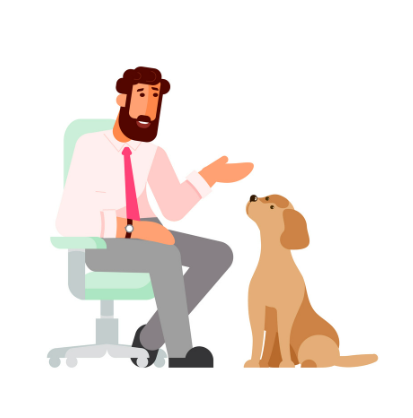Recent scientific studies have provided compelling evidence that dogs understand human language better than we’ve previously given them credit for. Researchers have discovered that dogs not only recognize the sounds of their owners' voices but also comprehend that specific words are linked to particular objects. This groundbreaking research was published in the Current Biology journal.
Brain Wave Evidence of Canine Understanding
Scientists at Eotvos Lorand University in Budapest, Hungary, led by neuroscientist and ethologist Marianna Boros, conducted experiments using electroencephalogram (EEG) machines to measure brain waves in 18 pet dogs. This technique allowed researchers to gauge how dogs respond to familiar and unfamiliar words spoken by their owners.
“For decades there has been a debate about whether animals are capable of such a level of abstraction,” Boros explained. The study's findings suggest that dogs' understanding of language may challenge the notion of human uniqueness in this area.
Learning Words and Meanings
While some exceptional dogs, like the famous border collie Chaser from South Carolina, have been trained to recognize hundreds of object names, Boros speculated that many more dogs understand words without a clear way to demonstrate it. To investigate this, researchers attached EEG electrodes to the heads of 27 dogs and played recordings of their owners using familiar words in simple sentences, such as “Luna, here’s the ball.” The dogs' brain activity was monitored as they listened and responded to the words and corresponding objects.
The Experiment Setup
During the experiment, dogs were shown an object mentioned in the sentence or a different one. The EEG readings revealed a significant pattern: when the word and object matched, the brain wave signals dipped notably lower than when they didn’t. This response mirrors human EEG readings when confronted with unexpected words, indicating that the dogs anticipated seeing the correct object based on the word they heard.
Implications of the Findings
The results suggest that dogs create a mental representation of spoken words and can distinguish between correct and incorrect word-object pairs. This indicates a higher level of cognitive processing and understanding than previously recognized.
Variability Among Dogs
Not all dogs may have the same capacity to learn words. The study involved dogs whose owners reported their pets knew at least five object names, with one dog boasting a vocabulary of 230 nouns. While not every dog may exhibit this ability, the study strongly supports the idea that some dogs do comprehend word meanings.
Expert opinions
Marie Nitzschner, a cognitive abilities researcher at the Max Planck Institute for Evolutionary Anthropology in Germany, praised the study, noting that it presents a strong case for dogs' understanding of specific words. She also highlighted that even if some dogs do not show this ability, they can still effectively communicate with humans through other means.
Broader Implications for Language Evolution
The research not only fascinates dog lovers but also provides valuable insights into the evolution of language in humans. By studying how dogs, who live in a language-rich environment with humans, process words, scientists hope to unravel the mysteries of human language development.
This study opens new avenues for understanding the linguistic capabilities of dogs and underscores their unique role in our lives. As Boros noted, dogs are particularly relevant subjects for such research due to their close relationship with humans and their historical selection for communication skills. This research not only enhances our appreciation of our canine companions but also contributes to the broader quest to understand the origins of human language.

